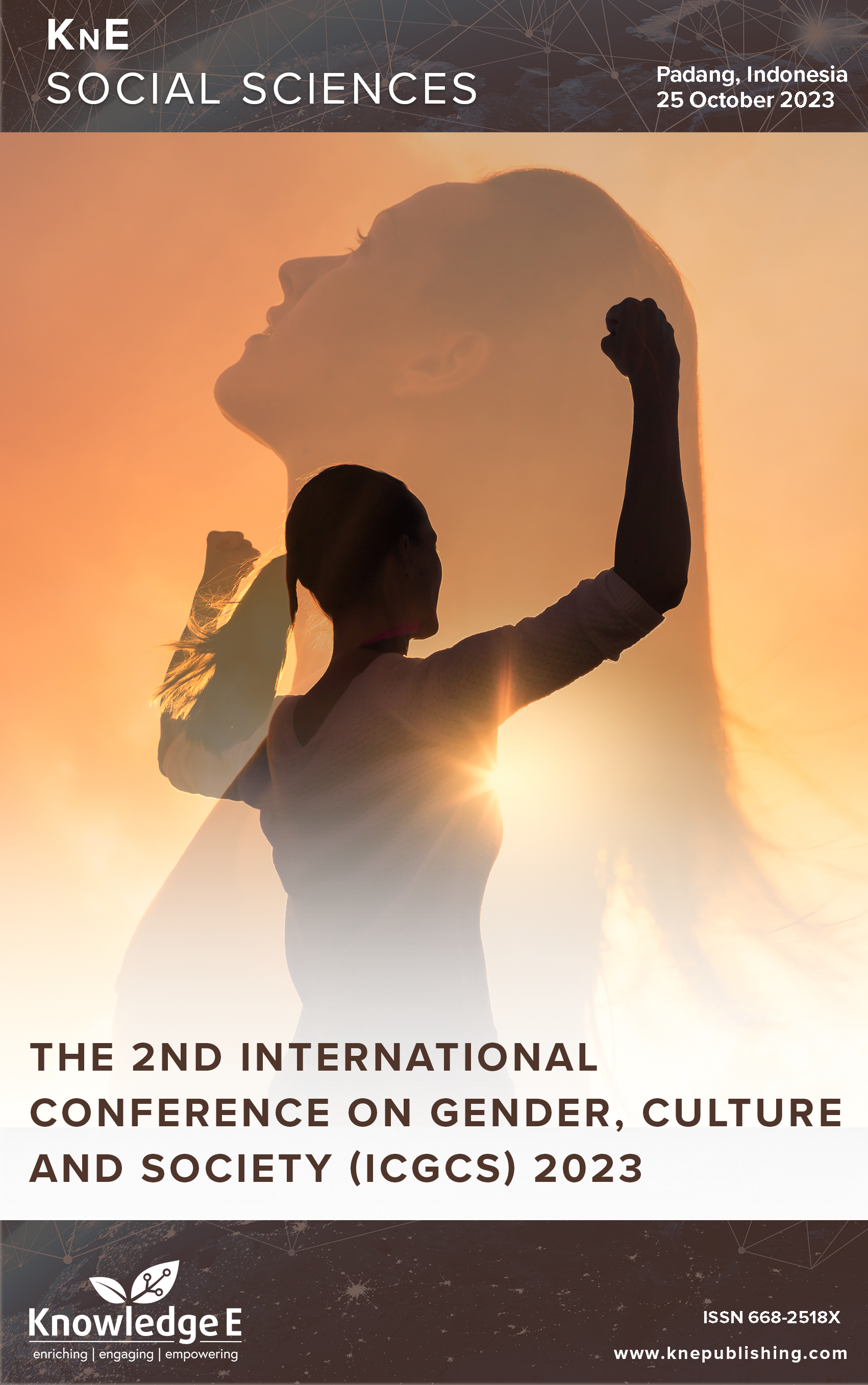Gender Mainstreaming in Women-Friendly Village Development Policies in Siak Regency, Riau Province - Indonesia
DOI:
https://doi.org/10.18502/kss.v9i23.16644Abstract
Even though Indonesia has adopted a Gender Mainstreaming policy through Presidential Instruction No. 9 of 2000, gender inequality remains a significant issue in Indonesia’s development process. Inequality in Indonesia is largely due to a lack of commitment from the Government and Regional Governments to implementing Gender Mainstreaming (PUG), especially in Siak Regency. Women’s participation is necessary at every stage of development, so gender mainstreaming needs to be supported and implemented. If the policy is implemented in a village it will be more pronounced because it is implemented directly by the community. However, this policy is not yet women-friendly because women’s involvement in the policy formulation process is still low. Women are still used as policy objects, not subjects so women’s interests have not been accommodated much in village development policies. Gender Mainstreaming (PUG) also aims to provide protection to women so that women’s rights are guaranteed and fulfilled to grow, develop and participate optimally in accordance with human dignity, as well as receiving protection from economic and sexual exploitation. This research was designed using a justice theory approach and a public policy theory approach. In these two quite different approaches, various data and in-depth information regarding gender mainstreaming in development policy in the village were obtained. In the previous research, which was related to “Gender Mainstreaming in the Green Siak Policy: Design of a Women-Friendly Ecology-Based Regency Budget Transfer (TAKE) Policy in Siak Regency, Riau Province - Indonesia”, it was also not seen how this policy was only intended for the public interest, not especially the participation of women. Women in the development process are expected to participate where BPS data shows that in 2022 there will be 12.72% of female heads of households, a decrease compared to the previous year, namely 14.38%. Women have the same potential human resources as men, although in general, in Indonesia, the participation of men is more dominant than that of women. The birth of the Green Siak policy gave rise to the TAKE policy (ecology-based budget transfer) with the aim of realizing environmentally sound development only and not creating women-friendly villages. Gender mainstreaming in various government programs at the local level is still only a discourse (narrative policy). Gender issues have not yet become a central issue in local policy discussions, so gender issues are drowned out in the midst of other issues such as environmental issues, employment issues, poverty issues and infrastructure issues.
Policies that should accommodate women’s interests amidst demands for achieving the SDGs have, in fact, not become mainstream in regional policies. The findings of this research indicate that village development policies are not yet fully inclusive of women or women-friendly. The policies issued still dominate the general interest and are not specific to women, such as women’s empowerment programs, women’s protection, and strengthening the capacity of women heads of households. Efforts to empower women are preventive of the occurrence of domestic violence. This effort is not solely through a juridical approach but can be accompanied by sociological, economic, psychological, criminological and cultural approaches that prevails in Siak Malay society.
Keywords: Gender Mainstreaming, Policies, Women Friendly
References
Firdaus E. Bentuk Kekerasan terhadap Perempuan dalam Perspektif Hak Asasi Manusia. Jurnal Konstitusi. 1(01).
Firdaus E. Perlindungan Perempuan Korban KDRT Menurut HAM Di Indonesia. Yogyakarta: Genta Publishing; 2015.
Firdaus E. (2021). The Implementation of Women Empowerment Policy on Prevention of Violence in Households in Kampar. Proceedings of the 1st International Conference on Science and Technology in Administration and Management Information, ICSTIAMI 2019, 17-18 July 2019, Jakarta, Indonesia. 2021. https://doi.org/10.4108/eai.17-7-2019.2303413. DOI: https://doi.org/10.4108/eai.17-7-2019.2303413
Hanani S. Affirmative Action di Era Reformasi dan Implikasinya Terhadap Pembangunan Berwawasan Gender. Kafaah: Journal of Gender Studies. 2012. http://kafaah.org/index.php/kafaah/article/view/45 DOI: https://doi.org/10.15548/jk.v2i1.45
Kartikasari D. Ketimpangan Gender di Indonesia Tetap Tinggi. 2018. https://www.koalisiperempuan.or.id/2018/12/11/ketimpangan-gender-di-indonesia- tetap-tinggi/
Permatasari AD, Harsasto P. Upaya pemenuhan hak politik penyandang disabilitas di kota semarang pada pilgub 2018. Journal of Politic. 2019. ejournal3.undip.ac.id. https://ejournal3.undip.ac.id/index.php/jpgs/article/viewFile/25021/22276
Prasisca Y, Sutikno FR. Gender equality and social capital as rural development indicators in Indonesia (case: malang regency, Indonesia). Procedia Soc Behav Sci. 2015;211:370–4. DOI: https://doi.org/10.1016/j.sbspro.2015.11.048
Schlozman KL, Burns N, Verba S, Donahue J. Gender and citizen par- ticipation: Is there a different voice? Journal of Political Science. 1995. https://www.jstor.org/stable/2111613 DOI: https://doi.org/10.2307/2111613
Tigayanti E, Soeaidy MS. Implementasi Kebijakan Pengarusutamaan Gender (PUG) Bidang Pendidikan di Kota Malang (Studi Kasus SMA 8 Malang). Journal of Social and .... 2014. https://wacana.ub.ac.id/index.php/wacana/article/view/338

